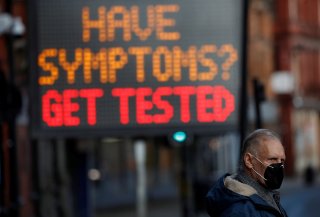OECD Report: U.S. Economy to Suffer $15 Trillion Loss Due to School Closures
It was estimated that students missing a third of the school year—and leading to a loss of skills in the future workforce—could eventually amount to nearly 70% of the current GDP for a typical country.
The Organization for Economic Cooperation and Development (OECD) has sounded the alarm that the shuttering of schools due to the ongoing coronavirus pandemic will cut into global economic growth by 1.5% for the rest of the century—with the United States, in particular, taking a $15.3 trillion hit.
“Learning loss will lead to skill loss, and the skills people have relate to their productivity,” the new report said.
It was estimated that students missing a third of the school year—and leading to a loss of skills in the future workforce—could eventually amount to nearly 70% of the current GDP for a typical country.
The OECD added that losses to economic growth could be “proportionately higher” if schools aren’t able to quickly return to “previous levels of performance.”
For months, as many children worldwide have relied on homeschooling and distance learning, the report pointed out that one particular negative impact could be the further widening of the gap in educational opportunities between the rich and poor.
Not surprisingly, during this pandemic, children who have internet access, computers, and supportive parents have fared much better.
“Students from privileged backgrounds … could find their way past closed school doors to alternative learning opportunities,” the report said.
“Those from disadvantaged backgrounds often remained shut out when their schools shut down.”
In order to limit further obstacles in education, the report contended that schools need to continue to build on the existing infrastructure for distance learning. And if in-person learning is eventually given the green light, schools must navigate how to reopen without causing new spikes in coronavirus infections.
The OECD, however, did manage to find a silver lining within today’s unconventional learning environments.
“There are evident benefits to students in expanding their learning time and opportunities beyond the school gate by being able to learn using a variety of distance learning approaches,” the report noted.
Just last week, a study conducted by the Federal Reserve Bank of St. Louis warned that the coronavirus pandemic will result in even deeper long-term economic damage than the oil crisis of the late 1970s, the early-1990s recession, and the Great Recession.
Such damage might include a substantial decrease in the U.S. GDP this year—which could be ten times the projected 6% to 9% drop.
Moreover, depending on whether the United States has one or multiple lockdowns, the viral outbreak’s effects will likely shrink economic output over the span of seventy years by 57% to 90% of the annual GDP before the pandemic began, the study said.
Now more than eight months into the pandemic, there are about 27.5 million confirmed cases of coronavirus worldwide, including at least 895,000 related deaths, according to the latest data from Johns Hopkins University.
Ethen Kim Lieser is a Minneapolis-based Science and Tech Editor who has held posts at Google, The Korea Herald, Lincoln Journal Star, AsianWeek and Arirang TV. Follow or contact him on LinkedIn.
Image: Reuters.

